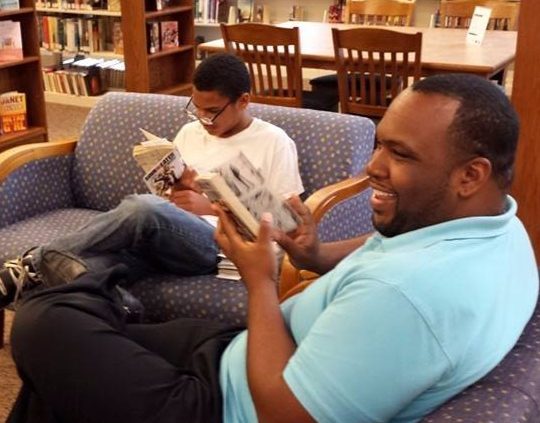The Impact of a Mentor
One of the things that sets Mentoring Plus apart from our peer organizations, is our long-term dedication to the teens we serve. Every young person admitted into our program commits to staying with us for at least one year. Just as important, we commit to be with them for a year.
At the heart of the program is the one-on-one relationship between that young person and their life coach. The teen and mentor meet once a week at the M+ building where they have dinner and follow the program curriculum. It’s usually a light, enjoyable evening for everyone involved, and allows the two principles to hang out and have fun in a relaxed (yet, structured) environment. Over time, however, that relationship becomes more and more important to the youth’s success–not just in the program, but in life.
Theirs’ is a lifestyle that looks more like survival. Living a life with more roadblocks than roads, these teens are growing up in circumstances that are unimaginably difficult. While most people might thrive when given the right support, these youngsters have no support. In fact, the places that you might turn in times of crisis — your family and friends — are the very places that these teens find the most hurdles. Often, it is those places of supposed comfort that someone in our program finds the most distress. And that is why the mentor is so important.
The mentor stands like a lighthouse among crashing waves; a beacon of stability and guidance in the most trying situations. The mentor provides a singular source of trust, hope, vulnerability, and eventually love. If the teens are the reason that this organization exists, then our mentors are our greatest asset. And if this program is to have any success, it is because of the relationships that are built between the teens and their life coaches.
In anonymous surveys taken by the teens in our program over the last twelve months, 95% said that their mentor helped them to feel good about themselves. 95% also either agreed or strongly agreed that their mentor helped them to challenge themselves, and 95% said that they could look to their mentor for guidance. Those numbers aren’t just impressive, they’re important! In the same survey, 55% of the teens felt respected by their parents, and only 45% felt that their parents even tried to understand them. This demonstrates the important role that these mentors play in the teens’ lives.
This is where we need your help. Currently, our organization is operating at just over 80% capacity. Ideally, we want to run at 100%, helping as many teens and families as possible. But admitting more youth requires that we have the volunteers to support them. The position of life coach is perhaps the most challenging volunteer role available, but it is certainly the most rewarding. Just as each teen admitted to the program agrees to participate for a full year, the lifecoach is asked to match that commitment. As mentioned before, the mentor/mentee pair attend the program once per week. They go through the planned curriculum together, building trust and developing mutual respect. Outside of the program visits, the two may meet up from time to time, or communicate more often on phone, text, or social media. And as the relationship grows we begin to see real changes in the youth.
November is National Inspiring Roles Models Month. Yes, that’s really a thing, and it’s going on right now. So think about who inspired you. Think about how you can inspire others. And consider becoming an inspiration to the people who need it the most.
To learn more about becoming a life coach or other volunteering opportunities, contact Laura at [email protected] or 859-462-4152.



